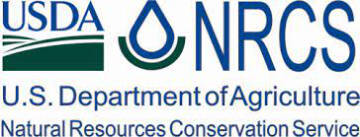The mornings with frost have become way more common in the last month. The summer craziness is slowing down, the garden is slowing down, and if you are ready for a break, read no further. When people out of state think of Alaska, many think of fishing and a long winter. With such a long winter, would why would we even consider a winter garden? Because while parts of Alaska are very cold and windy in the winter, there are plenty of areas that don’t fall below zero every single day, if at all, over the winter.
The USDA plant hardiness zone map will come in handy here. Hardiness zones are only based off the average annual lowest temperature. Some may feel a little misled when it comes to plant zones due to our cool summers, but here it works in our favor. Homer is a zone 6a with our lowest temperatures falling between -10°F to -5°F. Average lows (not that any season feels average anymore) stay above 15°F. While the Homer area has a range of microclimates, our winter temperatures are not as cold as other parts of the state.
All this means that growing in the garden for an extended season is possible with the right planning and tools. Sadly, we cannot grow tomatoes all year round, but many leafy greens can handle the cold and it may even sweeten them. Plants in the brassica family are known for their cold hardiness along with some legumes, and alliums. Look for specifically cold hardy varieties designed for a winter garden. Plants don’t grow very much over the winter; they can stay fresh and will be ready for the March sunshine to really kick off the early season growth. Transplants can be added to the ground to grow slowly over the winter, or you can try direct seeding after a hard frost to get an early spring crop without taking up space in your house.
Select an area of your yard that is protected from wind, isn’t at the bottom of a slope, and ideally gets lots of sun from the south and the west. It’s also critical to have good drainage to avoid rotting. Season extension can be helped through high tunnels, cold frames and low tunnels to protect the plants from wind, rain and cold.
If you are considering adding a low tunnel or high tunnel for season extension to your garden, reach out to the Natural Resources Conservation Service (USDA) field office in Homer. You may be eligible for technical and financial assistance to help you improve the condition of your soil, plants, and water.
Contact Emily MacDonald at 907-235-8177 ext. 101 or Emily.MacDonald@usda.gov, or find more information at www.nrcs.usda.gov/AK.
The Conservation Corner is a monthly column submitted by the Natural Resource Conservation Service Homer Office to highlight conservation happening around the community and how community members can apply conservation in their own backyards. Emily MacDonald is a soil conservationist in the Homer Field Office.


